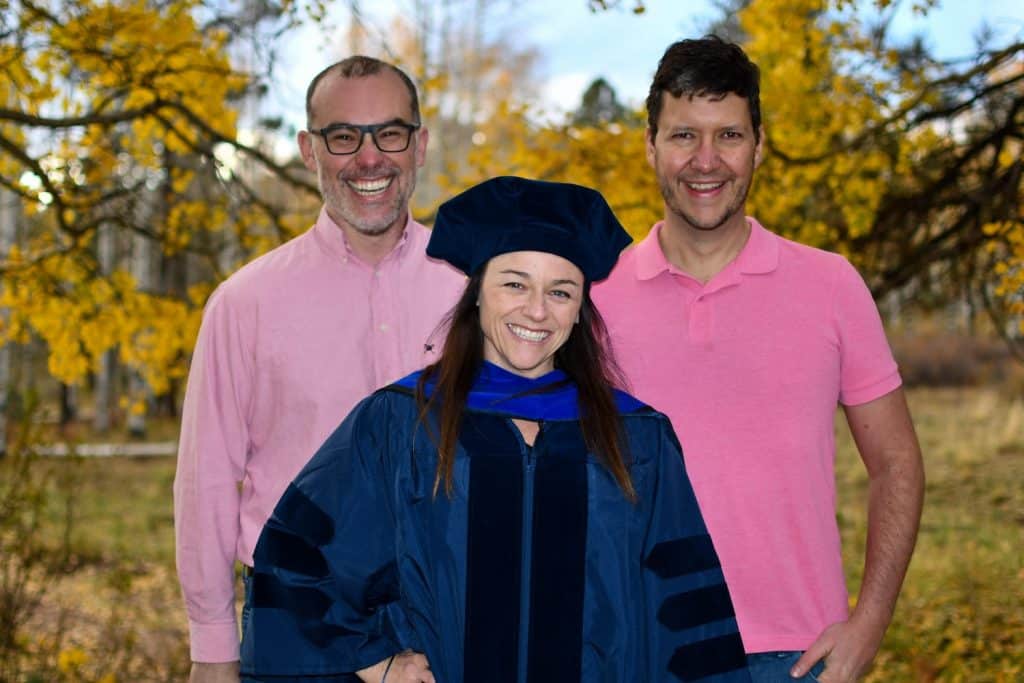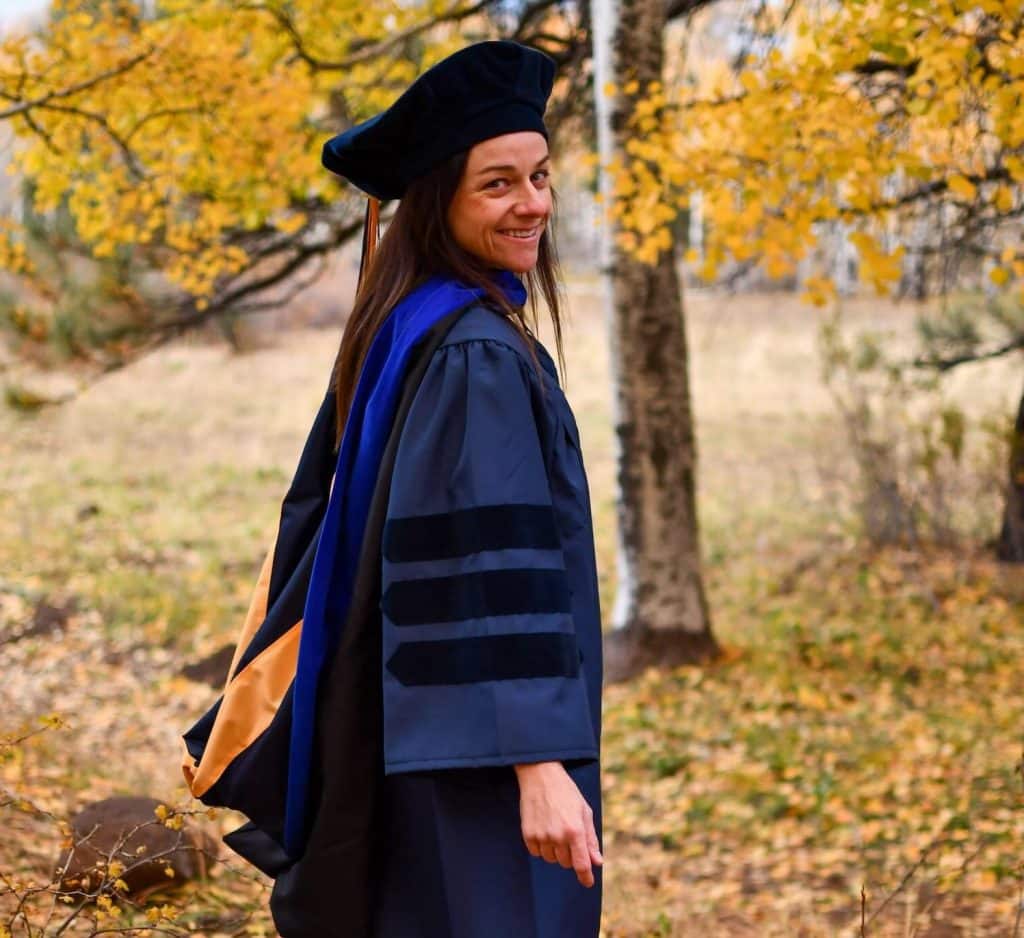While working as a software development project manager in Rio de Janeiro, Brazil, Bianca Trinkenreich was always one of few women in the room—and she often wondered why. When she came to NAU as a Ph.D. student, she had the opportunity to search for answers.
Trinkenreich joined assistant professor Igor Steinmacher’s Software Engineering Research Laboratory, where she investigated the hows and whys of women’s underrepresentation in the field of open-source software development.
“When I looked at the many types of people who were not participating in open-source software development, I found that the representation of women was especially low,” Trinkenreich said. “As a woman in tech, and as a mother with a daughter, I really wanted to understand why we’re not there and what we can do to encourage future generations of women to be there.”
Trinkenreich’s findings, published in a dissertation last spring, netted her one of the industry’s most prestigious distinctions: a dissertation award from the Association for Computing Machinery’s Special Interest Group on Software Engineering. The recent NAU graduate is the first Brazilian and the first Latin American to win the award, which is given every year to just one Ph.D. graduate worldwide.

Trinkenreich had never planned to study diversity and representation in software. But when she heard that Steinmacher, a fellow Brazilian whom she’d met at a conference in 2015, was looking for a graduate research assistant to join a National Science Foundation-funded research project investigating diversity in the open-source software development sector, she jumped at the chance to apply.
“When I got to NAU, I said, ‘OK, I’ve never worked in this area before, but I truly believe in inclusion and I want to help make software engineering more inclusive,’” Trinkenreich said.
Trinkenreich started with a deep dive into previous research on inequality in open-source software. She found that even when women possessed the same technical skills as men, their work was evaluated more harshly: When they submitted code anonymously, it was better received than when they submitted it with their names attached.
Trinkenreich believes today’s unequal treatment has a lot to do with the way open-source software development began.
“In the past, it was a boys’ club, a bunch of men in a garage,” she said. “Because so many of the biggest software companies started this way, it created this stereotype that women cannot do the hard things, put in the long hours, be part of the hard discussions. And because so many open-source projects start outside of the large companies and aren’t brought under their roofs until later, there are no HR inclusion guidelines to protect women from being excluded or treated unfairly. Sometimes a code of conduct isn’t enough.”
Trinkenreich believes there’s plenty of opportunity for open-source software communities to become more inclusive. In her dissertation, she proposed a mix of strategies to target many of the challenges faced by women in tech.
One way to attract women and minorities, she wrote, is to show them in recruitment materials, advertisements and company media assets to help aspiring software engineers see themselves in the field. Another is to showcase successful women’s stories across the company’s websites and social media, demonstrating that the company supports and cheers on the women they employ. Yet another, she said, is to expose more young girls to coding and avoid writing off their abilities too early, lest that discourage them from pursuing tech careers.
“Studies show that in early education, girls solve problems differently than boys,” Trinkenreich said. “Girls prefer to feel complete comprehension of a problem before solving it, whereas boys are more tinkerers. So it may seem to a teacher that a girl is slower to grasp a problem, but the reality is, she’s taking the time to understand the problem as a whole.”
Trinkenreich, now a postdoctoral scholar at Oregon State University, is proud to have won accolades for her dissertation, but she said she didn’t do the work alone. NAU’s focus on inclusive thinking deserves much of the credit: It steered her toward creating a dissertation committee made up of faculty in the computer and social sciences, which enriched her research.
“I feel like I’m giving back to women, and to all the students and professors I learned from during my time at NAU, with this dissertation,” Trinkenreich said. “I hope it opens people’s eyes to what it means to do research on all the aspects of diversity—such as age, tenure, race, ethnicity, gender identity—and how important that is.”
Jill Kimball | NAU Communications
(928) 523-2282 | jill.kimball@nau.edu




